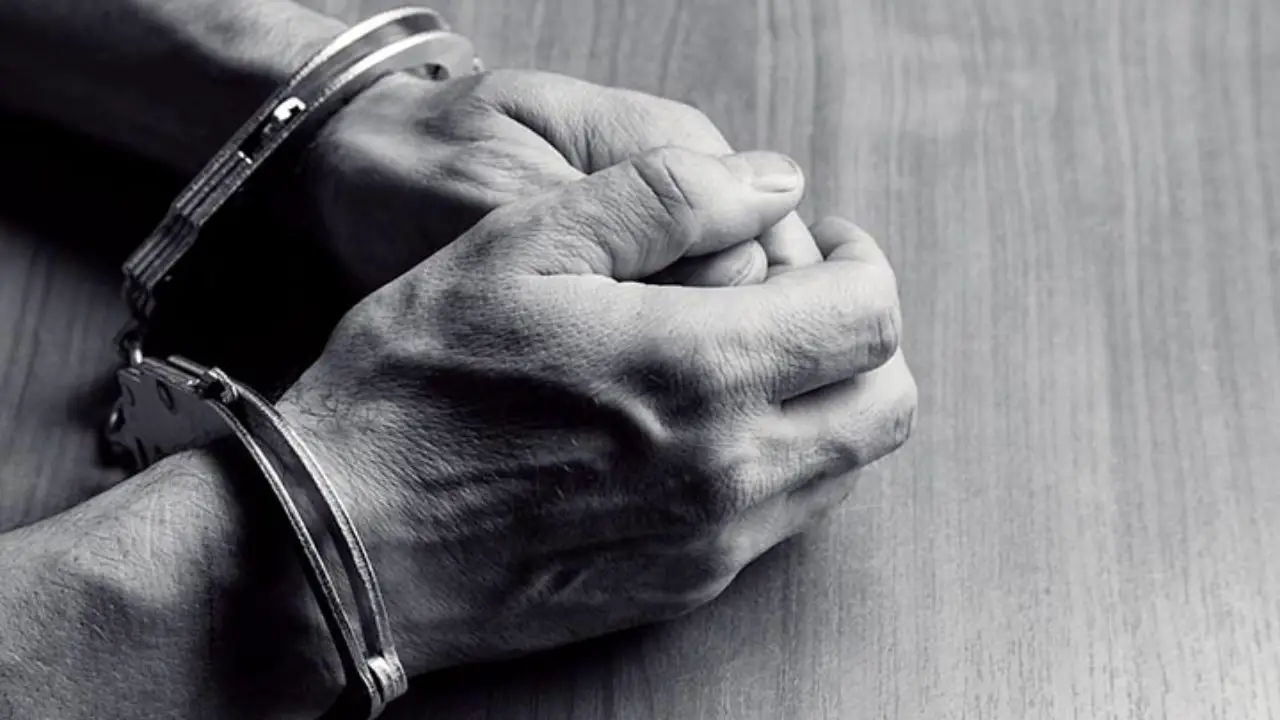You were a kid and you made a few mistakes. Back then, you didn’t understand how crippling a criminal record would be. Unfortunately, a criminal record will haunt you for the rest of your life. With that being said, it is best to stay out of trouble but it might be too late.
If this is the case, you’re likely worried about your record preventing you from getting a job. You have to understand that some crimes are far worse than others. Misdemeanors tend to be at the lower end of the chart but they could still create problems for you.
Within this guide, you’re going to learn more about getting a job with a misdemeanor on your record.
Understanding Misdemeanors

First and foremost, you’ll want to learn a bit more about misdemeanors. What are they? How severe are they? When compared to felonies, you’ll find that misdemeanors are less serious. They tend to be less serious criminal offenses.
However, the definition and crimes that fit into this category vary from one state to another. If you are convicted of a misdemeanor crime, you may face a fine, probation, community service, and a prison sentence up to one year.
The interpretation of this type of crime depends on which state you’re in. Furthermore, the level of punishment you’ll face will depend on the severity of the crime you committed. Furthermore, it should be noted that there are several classes of misdemeanors. If you commit a Class A Misdemeanor, you’ll likely face stiffer punishment. More about that will be provided below.
Different Classes Of Misdemeanors
Ultimately, there are several classes of misdemeanors. The punishment you receive will depend on the class of misdemeanor that you commit. Below, you’ll learn more about the different types and the punishments associated with them.
- Committing a Federal Class A misdemeanor means you could be punished by six months to a year.
- Committing a Federal Class B misdemeanor could result in a sentence ranging from 30 days to six months.
- Committing a Class C misdemeanor could result in a sentence ranging from 5 to 30 days in jail.
- Federal infractions are crimes that are punishable by less than five days in jail.
There are various misdemeanors. If you’re caught drinking and driving, you may get convicted of DUI which is a misdemeanor. Other crimes that fit into this category include burglary and property theft, perjury, resisting arrest, violating a restraining order, and possession of a controlled substance.
While misdemeanors aren’t as bad a felonies, they can create problems for you. Having a misdemeanor on your criminal record could change your life.
Recommended: Difference Between Misdemeanor vs Felony.
How Will A Misdemeanor On Your Record Change Your Life?

Whether you’re dealing with a felony or misdemeanor, committing a crime is going to change your life. However, the impacts of a misdemeanor will be far less severe than what you’re going to experience with a felony. Many of the effects associated with misdemeanor convictions will be direct and clear.
For instance, you may receive some type of sentence. It could include jail time or probation. The sentence will be handed down by the court. Below, you’ll learn more about the potential repercussions associated with misdemeanor convictions.
- Probation – If you’re sentenced to probation, your freedom will be restricted but you won’t have to serve time in jail or prison.
- Restitution – Depending on the type of crime you committed, you may be asked to pay restitution. This means that you’re giving money to the victims of your time. The court will set the amount.
- Community Service – Instead of going to jail, you may be required to complete community service. This is an option for people who do not have a lengthy criminal history. Community service may involve cleaning a local park or the highway.
- House Arrest – Some people may be required to serve time on house arrest.
- Privilege Restrictions – Some of your privileges may be restricted. For instance, your license may be suspended after being convicted of a DUI.
Furthermore, you may experience indirect repercussions. It is important to understand that a criminal record is going to haunt you. It’ll follow you for the rest of your life. It is important to avoid getting a criminal record because it could hinder your ability to get a job.
Jobs And Misdemeanors
Once you’ve been convicted of a misdemeanor, it is going to stay on your record. You won’t be able to hide it for the time being. For starters, you’ll have to report this information to potential employers. You’ll need to report the information on all future job applications and you’ll need to explain things to employers.
If you’ve been convicted of a misdemeanor, you may not be able to get certain jobs. For instance, you likely won’t be able to obtain a job that requires a license or certificate. This includes jobs in healthcare and teaching.
These options will no longer be available to you. Depending on the type of crime you committed, you may no longer be able to buy and own a firearm. This is generally the case when you’re convicted of a crime associated with domestic violence.
Furthermore, you have to understand that your criminal record is going to be open to the public. It can be seen by anyone and that can be problematic. Your criminal record will likely bring you shame and humiliation. If you’ve been convicted of financial crimes or fraud, you will have trouble getting jobs that require you to handle money.
Having a misdemeanor on your record will also make child custody more difficult. You’ll have a tougher time gaining custody of your children and you may not be able to adopt a child. Once you’ve been convicted of a misdemeanor, you may have trouble getting financial aid so you can return to collect. Some landlords are not willing to rent to people who have committed misdemeanor crimes.
Ultimately, having a misdemeanor is going to turn your life upside down. You’ll have immigration issues and your history will follow you for the rest of your life. If you want to avoid complications, you’ll want to avoid committing misdemeanor crimes. This is the best way to keep your nose clean and avoid problems in the future. If you experience major problems, you may want to work with an attorney.
How Will A Misdemeanor Impact My Job?

In most cases, employers are going to run background checks before hiring for a position. There are no restrictions for background checking someone already employed. This means that your boss may decide to run a background check on you at any point.
Employers want to make sure that problems haven’t occurred and that their employees haven’t committed crimes. So, there is always a chance that you’re going to be background checked. If you’re going to be getting a promotion or moved to a new position, your employer may decide to check your record.
From time to time, employers decide to retain workers so they can be ready to switch them to new positions. At this time, they may want to background check workers. This will help ensure that you’re ready for the new spot. You’ve likely signed a consent form giving the employer permission to run a background check on you at any point. You have to be ready for this. If you have not signed a consent form, it could be a federal violation.
It is vital to understand that you may be background checked after you’ve held onto a job for several months. When submitting an application for a new job, you will have to give the employer authorization to run a background check on you. While you could deny their request, this would likely lead to bigger problems. The employer may believe that you have something bigger to hide.
With that being said, you should not worry about hiding a misdemeanor. As long as you explain yourself to the employer, you may still be able to get the job. If you let the employer know about your criminal history, they may be willing to work with you.
Will A Misdemeanor Make It Difficult To Get A Job?
Having a misdemeanor on your record will create problems for you. While a felony is going to be much worse, a misdemeanor may prevent you from getting a job. Again, a misdemeanor isn’t as bad so you won’t run into as many problems as you would with a felony on your record.
Most employers are more worried about felonies but a misdemeanor could create problems. However, it could depend on the date. If the misdemeanor was more than 7 years ago, you likely won’t have to worry about it too much.
If you want to prevent problems, you should tell the potential employer about the crime. Trying to hide the misdemeanor is going to create major problems. The employer will believe that you were being dishonest about it and they won’t trust you.
It is important to prevent this from happening. You should always tell employers about your criminal history. If you’re honest about your past mistakes, the employer will see that you were telling the truth. In return, they’ll likely be more willing to work with you.
If you hide the misdemeanor but it shows up on your criminal background check, there is a good chance that you’re going to be denied the job. Lying about it may be worse than the crime. So, you should always be honest with the employer.
Will I Pass A Background Check With A Misdemeanor?

When applying for a job, you can guarantee that you’re going to get background checked. And, you have to understand that background checks are going to show felonies and misdemeanors. You won’t be able to hide from your past.
Before applying for a position, it is a good idea to run a background check on yourself. Once you’ve done this, you’ll be able to figure out what the employer is going to find on your background check. This ensures that you’re able to complete the application accordingly.
Misdemeanors carry lighter sentences than felonies but they can still create problems for you. In all likelihood, the misdemeanor will appear on your background check and the employer may use that to avoid hiring you. You have to remember that having any type of conviction on your criminal record could prevent you from acquiring the job.
Since misdemeanors are usually prosecuted on the county level, the record may not include it. This is sometimes the case when the employer carries out a state background check.
Nevertheless, you never know what the employer is going to do. While employers aren’t worried about misdemeanors as much as felonies, both can create problems for people looking for a job. With that being said, you should never try to hide your criminal record.
You should let the employer know about it on the application. This will give you a chance to tell the employer what happened. In most cases, the employer won’t be able to find information about arrests that took place more than seven years ago. You can also hide the convictions by having it expunged from your record.
Most employers are going to run background checks on new employees. So, you have to be ready for it. You need to be prepared to explain yourself to the employer. If you’re going to be working in a position of public trust, you need to be very careful.
If you’re going to be working in nursing, a bank, or retail store, you need to tell your employer what happened and what you’ve done to change your life. Remember that you may be able to convince them that you’re the right person for the job. Do that and they’ll be willing to overlook your criminal history.
Misdemeanor Vs Felony

When it comes to background checks and employment, you will find that felonies are far worse than misdemeanors. Most employers are going to see things this way as well. Felonies tend to be more serious crimes and they come with harsher penalties.
For instance, you may be sentenced to probation for a misdemeanor. But, you could get prison time for a felony. Shoplifting is often nonviolent so it’ll likely be a misdemeanor. If you’re involved in a murder or armed robbery, you’re going to be charged with a felony. The repercussions associated with misdemeanor convictions usually involved no jail time but you will be required to pay a fine.
If you are sentenced to jail, it should be less than 1 year. Felonies are much worse. In some states, you will receive a life sentence once you’ve been convicted of three felonies. Employers and the criminal justice system are not fond of people who commit felony crimes. If you are convicted of a felony, you’ll lose your second amendment rights as well as your right to vote. Furthermore, you will no longer be able to serve on a jury or hold public office.
Remember that certain crimes may go either way. DUIs may be a felony or misdemeanor crime. If nobody was harmed, you’ll likely be charged with a misdemeanor. If you injured someone or put someone at risk, you’ll likely face a felony charge. The same can be said with assaults. If you don’t use a weapon, you’ll probably face a misdemeanor charge. Using a weapon may elevate the charge to a felony.
Getting Job With A Misdemeanor
Whether you stole a road sign or shoplifted from a retail store, you may have a misdemeanor on your record. It was a joke many years ago but it is no laughing matter now. Your criminal history followed you for the rest of your life.
Now, you want to do something about it. The good news is that you’ll likely be able to obtain a job although you have a misdemeanor on your record. You just need to know how to move forward. Below, you’ll find tips for acquiring a job with a misdemeanor on your criminal record.
Know Your Record
First and foremost, you’ll want to take the time to check out your record. This is far more important than you could ever imagine. There is always a chance that the conviction isn’t going to show up on your criminal record. If this is the case, you should keep it to yourself. How can you be positive that the crime won’t show up on a background check? The best way to find out is by running a background check on yourself. You’ll want to check your criminal record.
This is the same information that an employer is going to find when they run a background check on you. Use this information to your benefit so you’ll know how to address the issue.
Get It Expunged

Unfortunately, it can take many years for a misdemeanor to disappear from your criminal record. With that being said, you may want to remove it much sooner. If this is the case, you should think about having the conviction expunged from your record. This is one of the most convenient ways to address the problem. You will likely be able to expunge the crime if you’ve completed everything the judge and probation officer have recommended.
Furthermore, you should think about enrolling in a program for first-time offenders. Once you’ve completed the program, you’ll likely be able to speed up the process.
Either way, expunging it from your record is one of the best options.
Don’t Lie
One of the worst things you can do is lie on your job application. If you lie on a job application, there is always a risk that the employer is going to find out about it. This will almost always disqualify you from the position. Employers do not like people who lie on applications so you do not want to commit this mistake.
Remember that misdemeanors are not as bad a felonies. Therefore, you shouldn’t feel obligated to lie about it. Instead, you should be eager to tell your employer about the problem. Let them know what happens. Then, you’ll want to explain what you’ve done to fix the issues over the years.
As long as you do this, you’ll be able to convince the employer that you’re a good fit for the job. If you can explain yourself, they’ll likely forgive you and give you a chance.
Show Remorse And Regret
Finally, you should make sure that you’re showing remorse and regret. When telling the employer about it, you should prove to them that you regret your mistakes. You’ll want to show remorse for the victims of your crime. Prove to them that you’re sorry and they’ll likely hire you.
Misdemeanor Disclosure On A Job Application
Misdemeanors are criminal offenses. Even though these criminal offenses are not as severe as felons, they should be disclosed on a job application. Even if you are only applying for a custodial position at an office complex, all of your criminal offenses should be disclosed on the job application.
Depending on the company, a criminal background check may be required. Hospitals, public entities, senior citizen facilities, and other companies where employees work in and around other people, criminal background checks are a must. Even if you are not going to have direct contact with the residents, visitors, or guests, your criminal background could impact your chances of getting hired.
Not all companies are interested in misdemeanor convictions, they are only interested in felony convictions. In these cases, job applicants with misdemeanor convictions feel like they are being put on the spot. Well, maybe you are in a way but honesty is always the best and only course of action.
If the job application does not mention misdemeanor convictions, you may believe your off scot-free. But, this may not be the case after all. It may get you a scheduled appointment for an in-person interview but that is about as far as you will get without broaching the misdemeanor topic.
Right Interview Response – Know Exactly What To Say, When To Say It

In most cases, human resource representatives do not often ask about criminal history during job interviews. So, the subject may not even come up during the interview. Will this play in your favor? Well, it could be for the best at the time but you are not going to get off scot-free. You will at some point need to broach the subject but it is best to wait for the appropriate moment.
Is it a good idea to mention a criminal history during a job interview? You should know by now that a criminal history is not always the determining factor of whether or not a job candidate is hired. In fact, there are some companies that are more than willing to hire ex-felons.
In these cases, honesty is only the best policy. Yes, you should broach the topic but wait until the right moment. Most professional job interviewers have routines, they may start the interview by introducing themselves and go from there. But, hardly is it the case that a criminal history is the first subject to be broached.
It is always recommended to wait until you are asked if you have any questions or concerns. This is the best time to bring up your criminal history. How should you broach the subject? Start out by giving an explanation of your crime. This will open the door, so you can explain how you have made improvements in your life after prison. Now, is the ideal time to mention the steps you have taken to change your life around.
If you participated in self-help groups, vo-tech or college classes, or other programs for ex-felons, now is the time to mention those as well. Your goal should be to explain your situation to the fullest. And, give the interviewer time to respond. If the interviewer has other appointments scheduled, you do not want to delay longer than necessary.
Do not hesitate to admit your mistakes. If you do, the interviewer will not take your explanation seriously. You may need to answer a few questions, so be prepared in advance. It is always best to recite the interview in several scenarios prior to your appointment.
Do not defend the actions that led to your felony conviction. This will only draw a red flag and all your effort will be in vain. Everyone makes mistakes from time to time. Your mistake was committing a criminal offense that led to a prison sentence. Just accept this and move on.
Know Your State And Local Laws
In most cases, employers are not permitted to base their hiring decisions solely on a criminal conviction. It is against the law to disqualify a job applicant with a prior conviction or convictions alone. The employer must combine criminal convictions with other factors to stay on the right side of the law.
It crucial to note, many employers in the United States will not automatically disqualify you because of a minor offense. However, if you do not meet the job qualifications and have a criminal offense, you may legally be disqualified by the employer.

